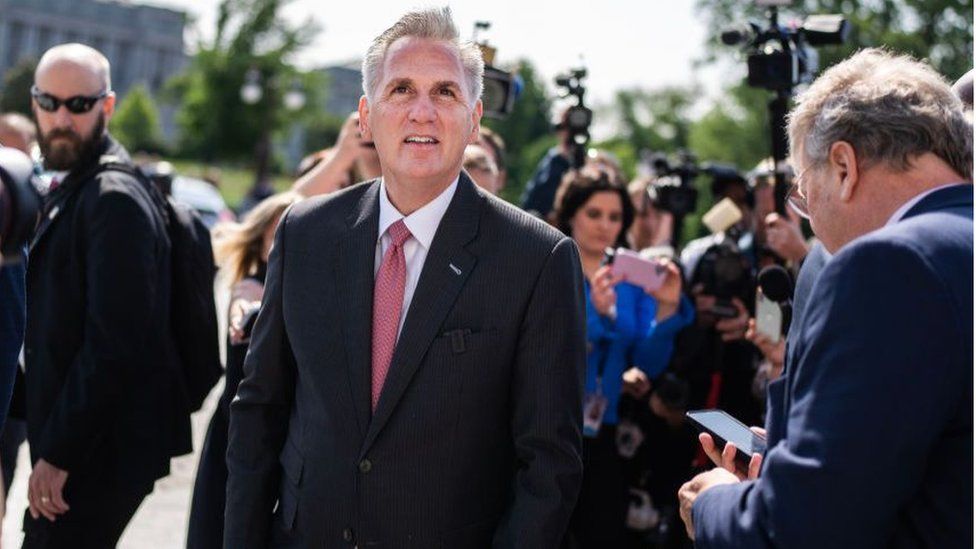ARTICLE AD BOX
 Image source, Getty Images
Image source, Getty Images
Kevin McCarthy leads Republicans in the House of Representatives
Lawmakers in Washington are preparing to leave town for a holiday weekend, with time running out to reach a deal over raising the debt ceiling.
The US Treasury has warned that the country will not have enough money to pay all of its bills as soon as 1 June.
Analysts say if the US fails to honour obligations it could have severe economic consequences.
Investor worries have increased, despite assurances from negotiators that talks are making progress.
Republicans are seeking spending cuts to government programmes, in exchange for raising the $31.4tn (£25tn) cap on government borrowing.
House Speaker Kevin McCarthy, who leads Republicans in the House and has been the most high-profile public face of the talks for his party, said Democrats and Republicans had worked past midnight on Wednesday and would continue to negotiate.
"There's a couple of issues still hanging out there that we've got to get done," he said. "We're gonna work 24/7 to try to make that happen."
There is no current plan for the two sides to meet on Thursday, but that could change.
Another key Republican said he believed a deal to raise the nation's debt-ceiling deal was "likely" by Friday afternoon.
"We are inching closer to a deal. I think it's some of the finer points they are working on right now," Rep Kevin Hern told Reuters. "You are likely to see a deal by tomorrow afternoon."
The S&P 500 and the Nasdaq were trading higher at midday on Thursday, lifted by positive updates on earnings from some companies, while the Dow Jones Industrial Average was down about 0.6%.
That followed several days of declines.
Fitch Ratings, one of the big three credit ratings agencies, on Wednesday said it had put the US on "negative watch" - the first step toward lowering the country's credit rating.
It cited "increased political partisanship" and weak governance compared to other countries that hold its top rating.
"The brinkmanship over the debt ceiling, failure of the US authorities to meaningfully tackle medium-term fiscal challenges that will lead to rising budget deficits, and a growing debt burden signal downside risks to US creditworthiness," the company said.
Mr McCarthy has promised to give lawmakers 72 hours to review the bill, and at least 24 hours' notice if they have to return to Washington early. If a deal is reached this week, a vote could happen early next week.
There is little wiggle room for objections to be raised, as the Senate would also have to vote on the bill, which would then go to the White House for signing.
Lawmakers could also temporarily lift the debt cap to give the talks more time.

 2 years ago
38
2 years ago
38








 English (US) ·
English (US) ·